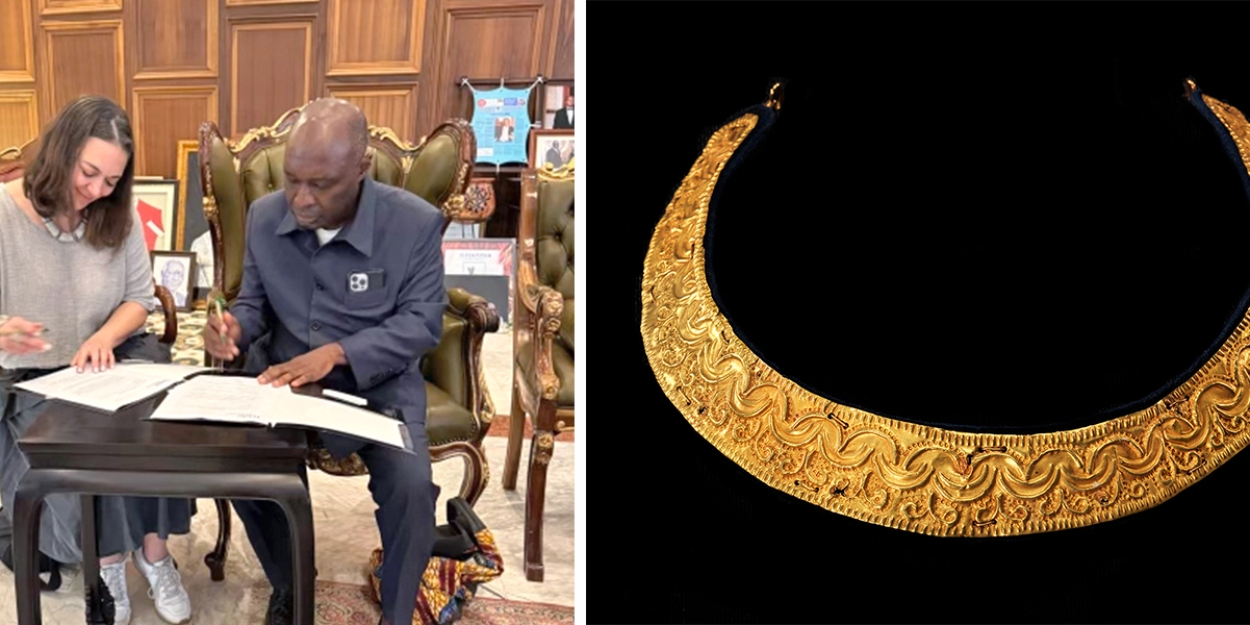UCLA's Fowler Museum To Return Looted Cultural Objects To Ghana
This historic international return marks a significant milestone in the Fowler's long history of restitution.

The Fowler Museum at UCLA, a renowned museum dedicated to global arts and cultures with an emphasis on Africa, Asia, the Pacific, and the Indigenous Americas, has announced the permanent and voluntary ethical return of royal objects to the Asante Kingdom in the Republic of Ghana. The museum, which recently celebrated its 60th anniversary, is a leader in repatriation to Native American tribal communities. This historic international return marks a significant milestone in the Fowler's long history of restitution.
On February 5, 2024, Silvia Forni, the Shirley & Ralph Shapiro Director of the Fowler Museum; Erica P. Jones, Senior Curator of African Arts and Manager of Curatorial Affairs; and Rachel Raynor, Director of Registration and Collections Management, personally returned objects to His Majesty, Otumfuo Osei Tutu II, the 16th Asante King (Asantehene), on the 150th anniversary of the British looting of Kumasi, a city in the Asante Region of Ghana.
“We are globally shifting away from the idea of museums as unquestionable repositories of art, as collecting institutions entitled to own and interpret art based primarily on scholarly expertise, to the idea of museums as custodians, with ethical responsibility for the collection and towards the communities of origin of these collections,” said Forni.
To ensure the safe and ethical return of these objects, the Fowler Museum has worked closely with the Asante royal palace and Tufts University Professor and palace scholar Kwasi Ampene, who was integral in liaising the exchange.
Thanks to a 2019 grant from the Mellon Foundation, the Fowler was able to conduct extensive research into their colonial-era African collection. Among the objects in the collection were seven pieces that were either looted or extorted from the Asante in 1874 during the Sagrenti War (also known as the Third Anglo-Ashanti War). Before this research initiative, the Fowler's database had no data linking these objects and the war. Once the Fowler confirmed their histories, they immediately sought to return the objects to the Asante. This process took years and required the generous support of many people, including colleagues in the United States, Asante palace officials, and the Asantehene himself.
The returned objects include a sika mena (elephant tail whisk), two royal stool ornaments, a gorget (royal necklace) or stool ornament, bracelets and/or anklets, and an asipim (ornamental chair).
“At the Fowler Museum, we think of ourselves as temporary custodians of the objects in our collection,” said Jones. “In the case of pieces that were violently or coercively taken from their original owners or communities, it is our ethical responsibility to do what we can to return those objects. It is a process that will occupy generations of Fowler staff, but it is something that we are unwavering in our commitment to accomplish.”
Comments
.png)
|
.png)
|
Videos

